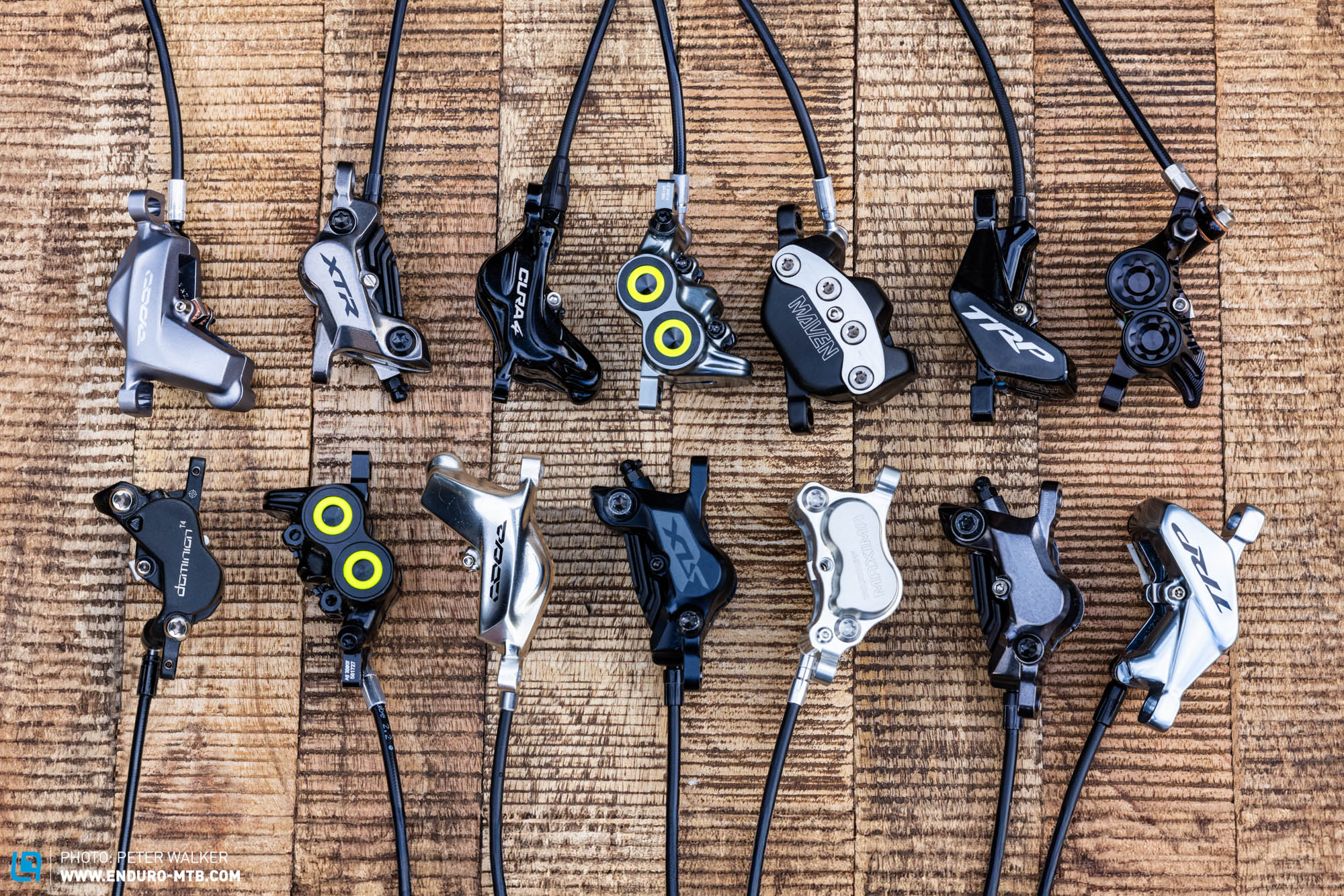2WheelsNot4
E*POWAH Master
OK, lets not be having its Sram slagging off Shimano* and try to stick to the topic in hand.
*Which it obviously is
But I found this link interesting.

 enduro-mtb.com
It gives facts and figures but one strikes me as odd. In the comparison it looks like Hope E4's are better than Hope V4's. Surely theres been a mix up. The E4 has 4 identically sized pistons, but the V4 has 2 large and 2 small, the small being the same size as the E4 pistons.
enduro-mtb.com
It gives facts and figures but one strikes me as odd. In the comparison it looks like Hope E4's are better than Hope V4's. Surely theres been a mix up. The E4 has 4 identically sized pistons, but the V4 has 2 large and 2 small, the small being the same size as the E4 pistons.
It lists V4's as having slightly higher braking torque, but less actual stopping power by way of time from 45kph-0kph
Maybe Im missing something, but if the greater the torque, then shouldn't it be more powerful, and certainly V4's have been touted as more powerful than e4's
I can clearly see there are more powerful brakes out there, but Ive been a Hope fan and user since the mid 90's, I'm very familiar with servicing, bleeding and all so despite better being out there it's unlikely I shall ever change.
I would love them to carry out a comparison test between today's brakes and the first Hope hydraulic, the C2. Now there was a brake 26mm pistons on return springs, so you never had to worry about pistons not returning properly.
26mm pistons on return springs, so you never had to worry about pistons not returning properly.
I did hear somewhere lost in the mists of time that C2's were better than mini mono m4's. or at least comparable.
*Which it obviously is
But I found this link interesting.

The best MTB disc brakes – 14 MTB brakes in comparison
We tested the 14 newest and most powerful MTB brakes - in the lab and on the trail.
It lists V4's as having slightly higher braking torque, but less actual stopping power by way of time from 45kph-0kph
Maybe Im missing something, but if the greater the torque, then shouldn't it be more powerful, and certainly V4's have been touted as more powerful than e4's
I can clearly see there are more powerful brakes out there, but Ive been a Hope fan and user since the mid 90's, I'm very familiar with servicing, bleeding and all so despite better being out there it's unlikely I shall ever change.
I would love them to carry out a comparison test between today's brakes and the first Hope hydraulic, the C2. Now there was a brake
I did hear somewhere lost in the mists of time that C2's were better than mini mono m4's. or at least comparable.
